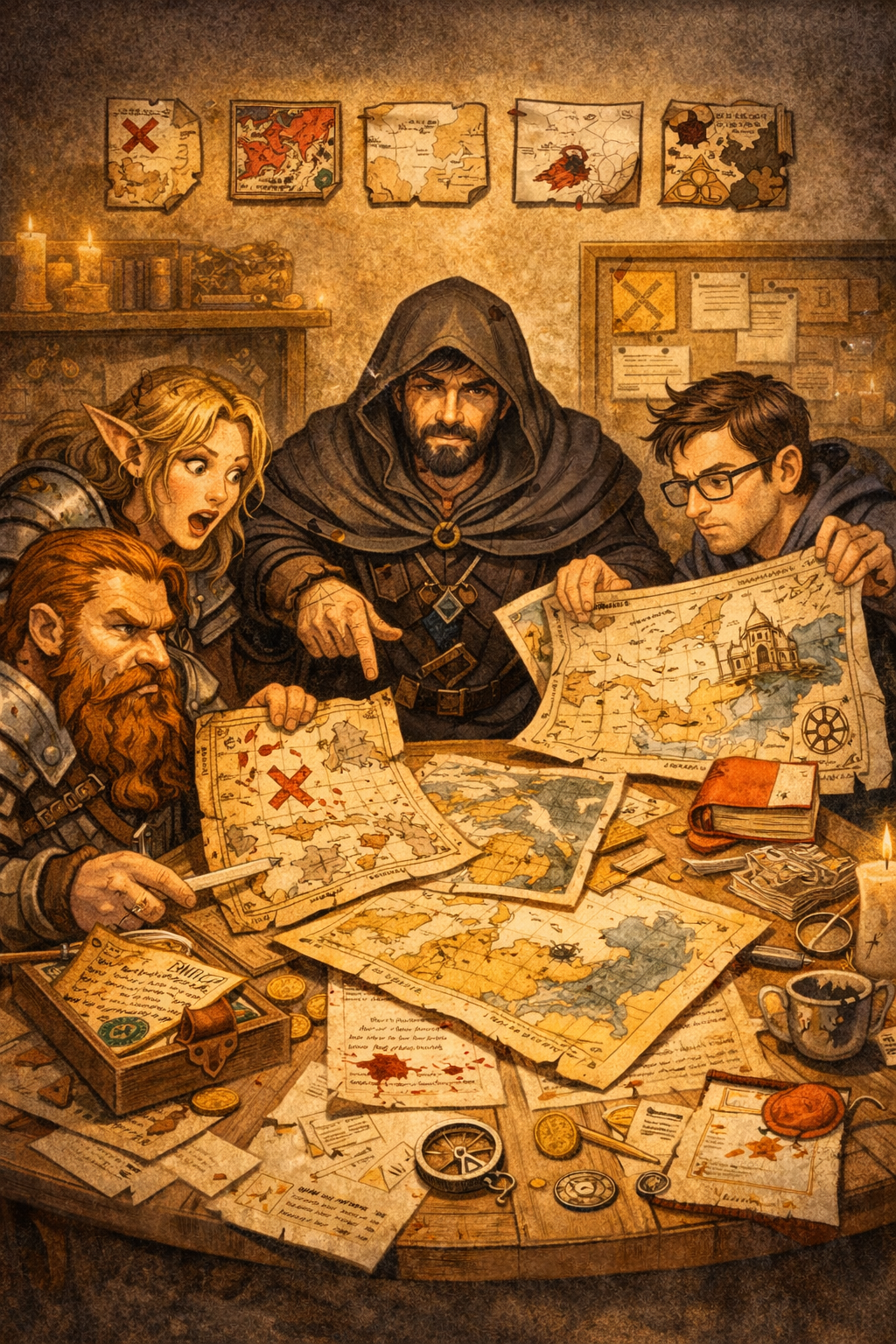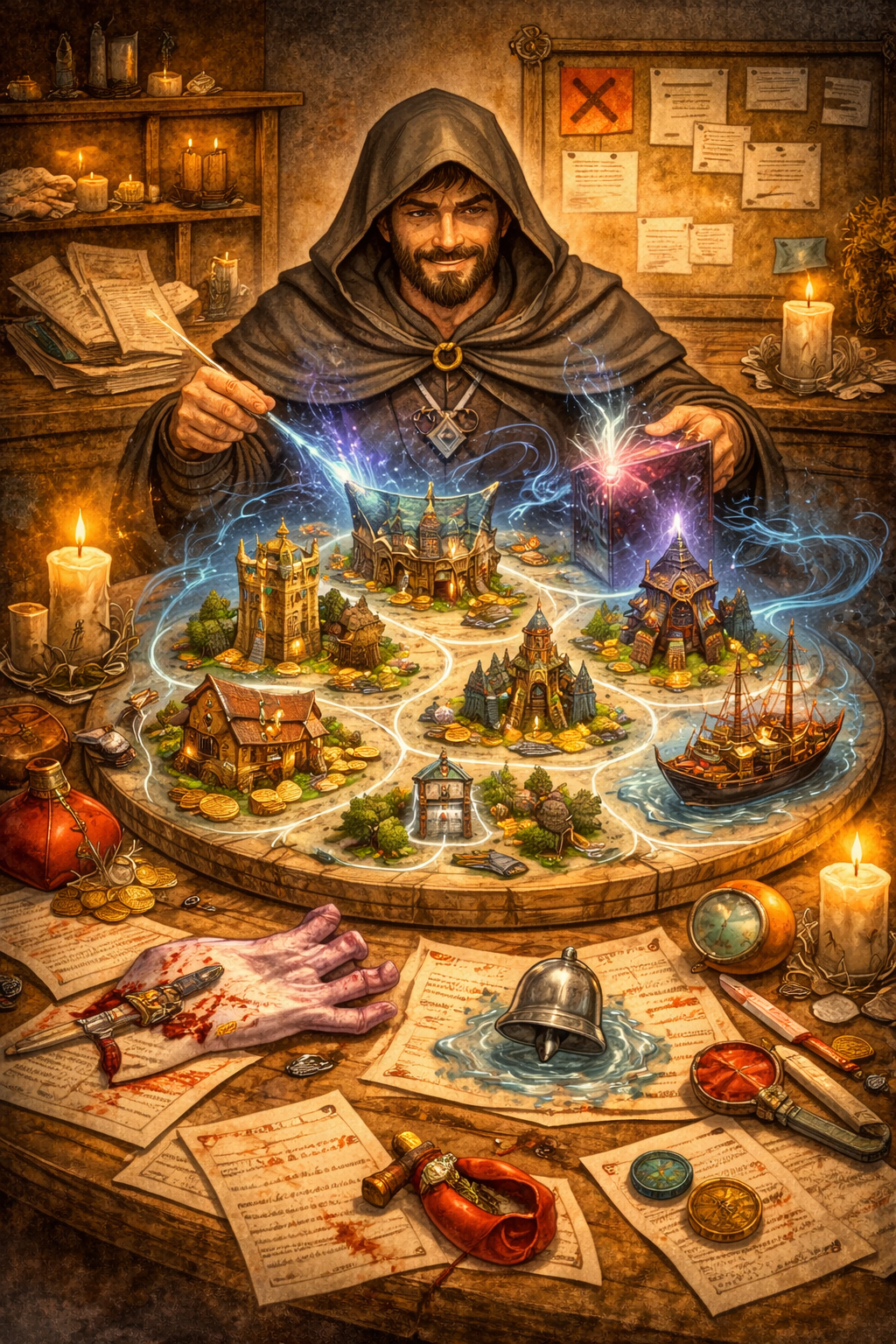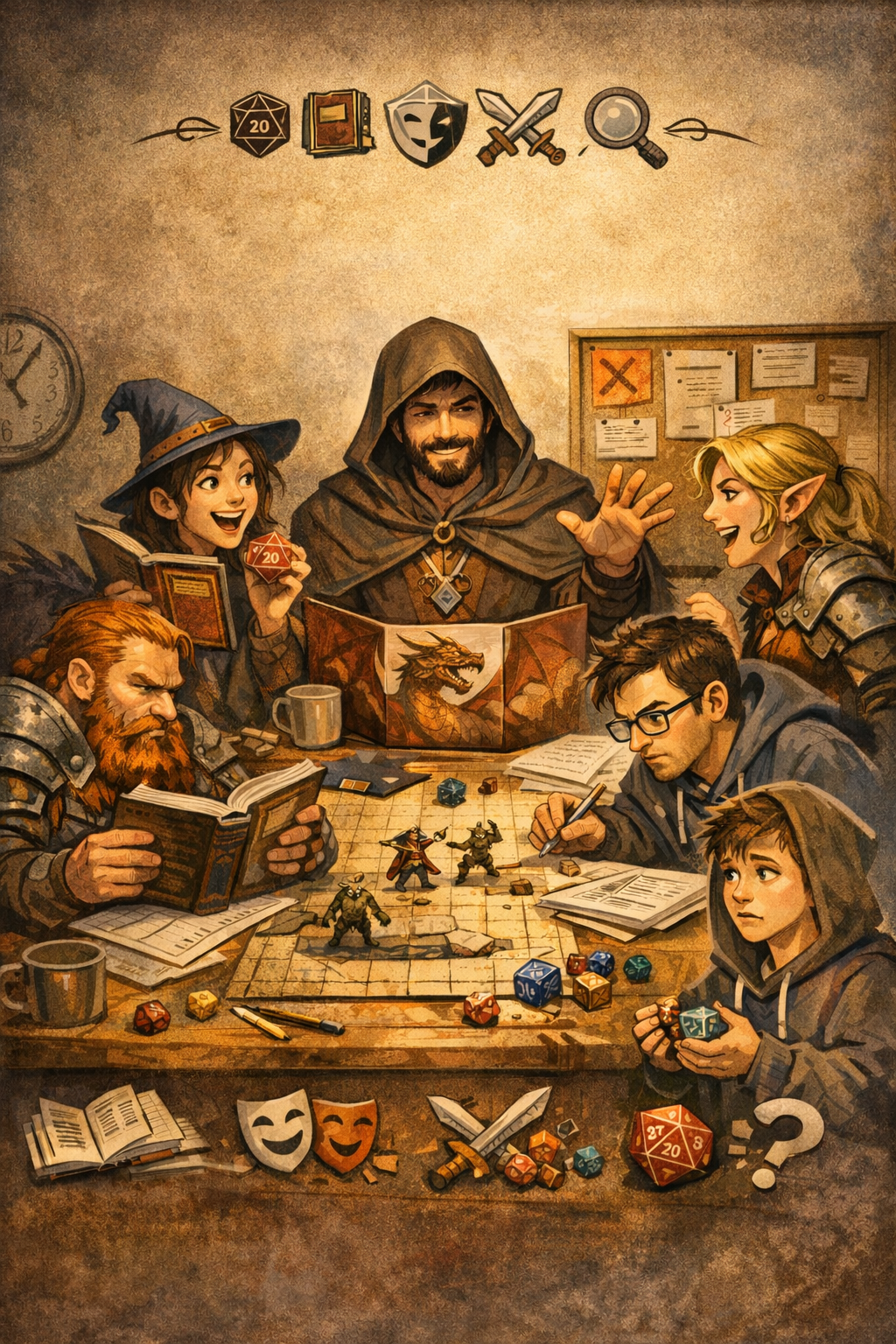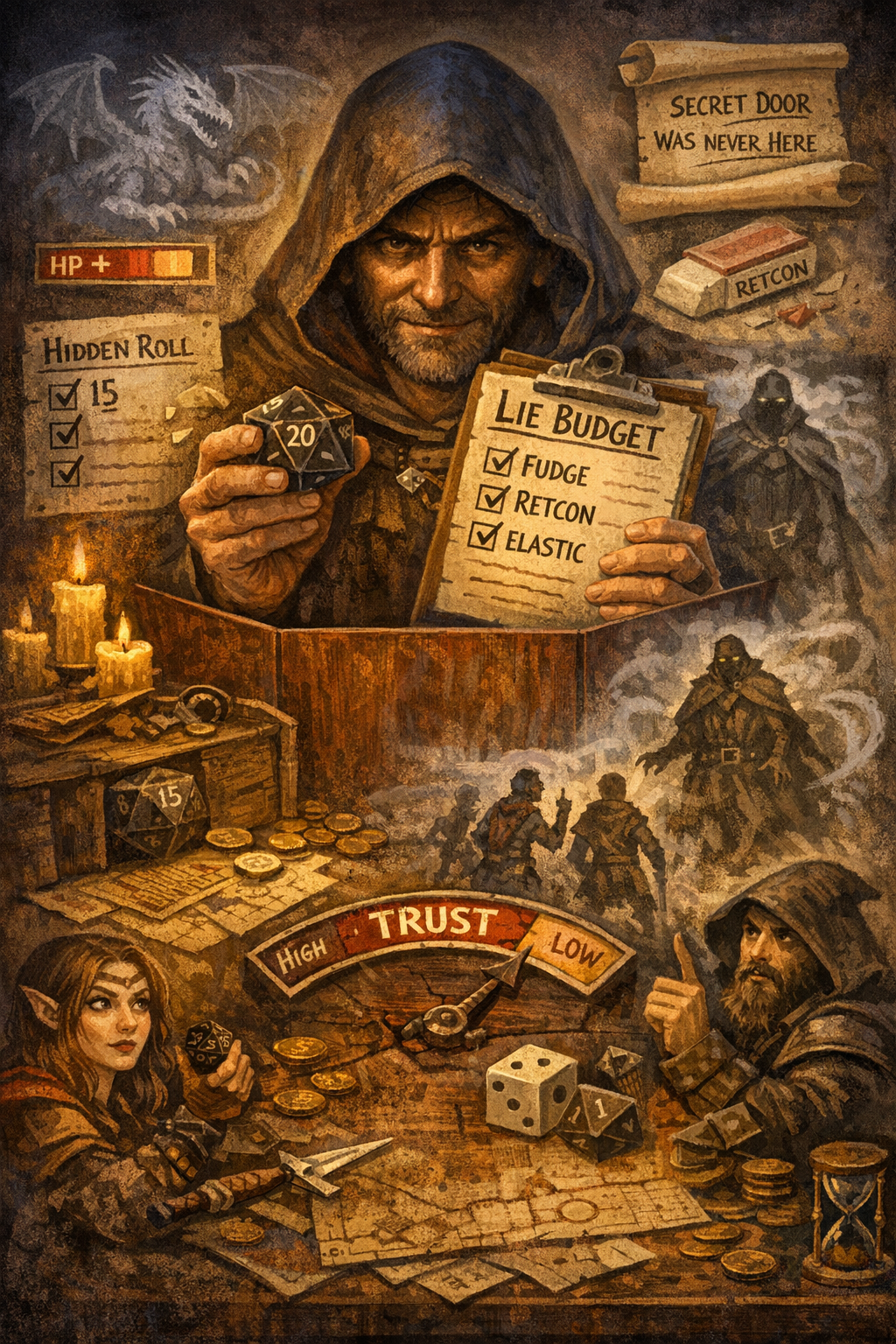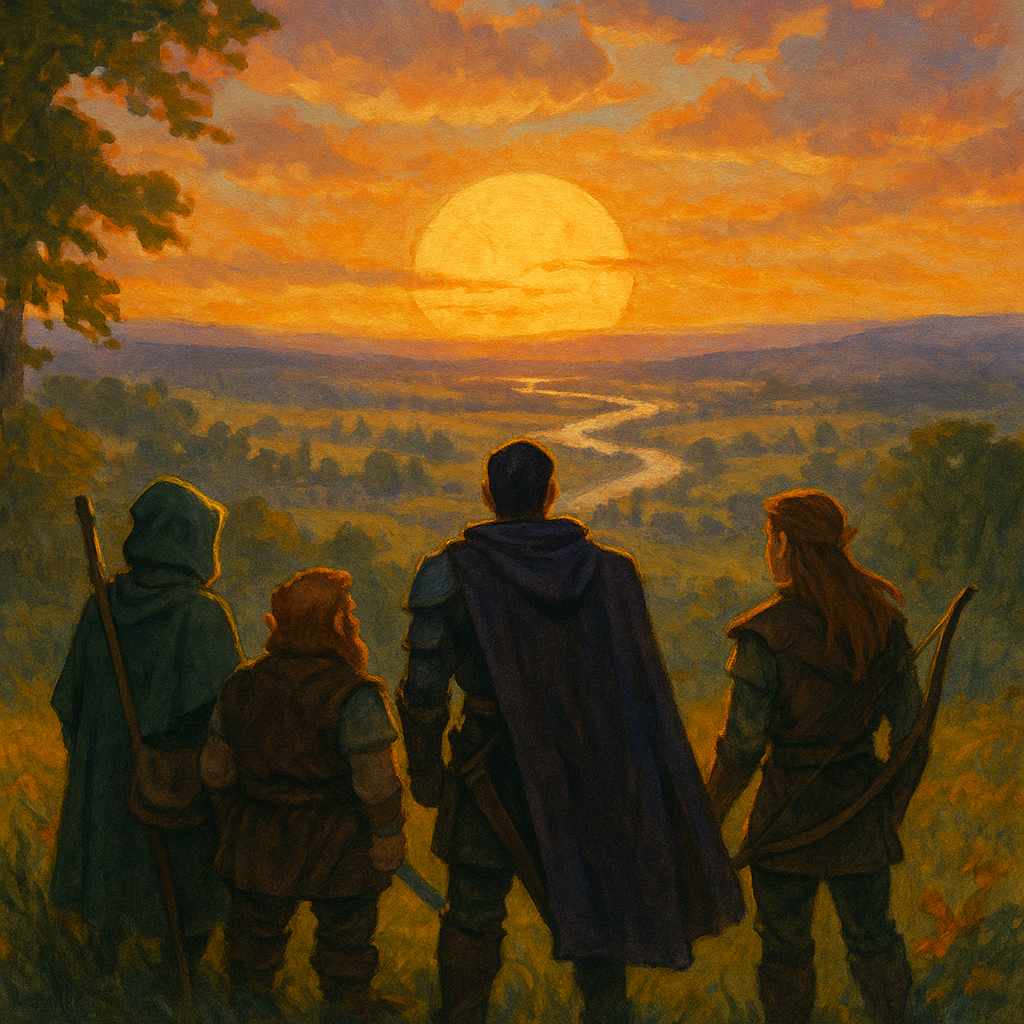How-to DM: Session Preparation
Dear Readers, Dungeons & Dragons (D&D) is a game of imagination, strategy, and collaboration. At the heart of every memorable D&D campaign is a Dungeon Master (DM) who crafts a rich and immersive world for players to explore. One of the key elements that contribute to a successful D&D session is thorough preparation. In this guide, we’ll delve into the art of session preparation, providing DMs with a step-by-step approach to creating engaging and dynamic game sessions.
Understanding Your Players
Before diving into the nitty-gritty of session preparation, it’s crucial to have a solid understanding of your players. Every group is unique, with different preferences, playstyles, and expectations. Take the time to talk to your players about their likes, dislikes, and the type of game they want to experience. Are they interested in combat-heavy sessions, intricate puzzles, political intrigue, or a blend of various elements?
Additionally, consider the backgrounds and motivations of the player characters (PCs). Understanding the characters’ goals and personal stories allows you to tailor the campaign to their interests, creating a more personalized and immersive experience.
Setting the Stage: Campaign Arcs and Themes
Once you have a grasp of your players’ preferences, it’s time to conceptualize the overarching narrative of your campaign. Think about the major story arcs and themes that will shape the world in which the adventurers dwell. Are there ancient prophecies, political unrest, or cosmic threats that will drive the narrative forward?
Having a clear idea of the campaign’s direction allows you to foreshadow events, introduce recurring characters, and create a sense of continuity throughout the sessions. However, flexibility is key. Be prepared to adapt your overarching narrative based on the choices and actions of the players, allowing their decisions to shape the course of the campaign.
Session Zero: Collaborative World-Building
Consider conducting a “Session Zero” with your players before the campaign officially begins. This session is an opportunity for everyone to discuss expectations, establish ground rules, and collaboratively contribute to world-building. Encourage players to share their character backstories, connections, and aspirations. Use this information to weave their narratives into the fabric of your world.
Collaborative world-building not only invests players in the campaign but also provides you with valuable material to incorporate into your sessions. As the DM, you don’t have to carry the burden of creating an entire world alone; let your players contribute to the richness of the setting.
Session Preparation Checklist
With a solid foundation in place, let’s dive into the step-by-step process of preparing for a D&D session. This checklist is designed to guide DMs through the essential elements of session preparation, ensuring a well-rounded and engaging experience for the players.
1. Review Previous Sessions
Before planning the upcoming session, take a moment to review the events of the previous sessions. Consider any loose ends, unresolved plot points, or decisions made by the players that might have consequences. This continuity helps maintain a coherent narrative and allows you to seamlessly integrate past events into the current session.
2. Outline the Session’s Goals
Determine the primary objectives of the upcoming session. What key events or milestones should the players encounter? Establishing session goals provides a framework for your preparation and ensures that the session remains focused and purposeful.
Consider the balance between combat encounters, exploration, and role-playing opportunities. This variety keeps the session dynamic and caters to different playstyles within your group.
3. Develop Key NPCs
Identify and flesh out the non-player characters (NPCs) that the players are likely to interact with during the session. These NPCs could be quest givers, allies, villains, or neutral parties. Provide each NPC with distinct personalities, motivations, and quirks to make them memorable and engaging.
Consider the relationships between NPCs and how they fit into the larger narrative. Creating a relationship web can help you visualize the connections between different characters, adding depth to the world.
4. Design Locations
Whether the adventurers are exploring a bustling city, a mysterious dungeon, or a serene wilderness, crafting detailed locations enhances the players’ immersion. Develop key locations that align with the session’s goals and the overarching campaign narrative.
Describe the sights, sounds, and smells of each location, and consider any unique features or challenges the players may encounter. Maps, either hand-drawn or digital, can be invaluable tools to help players visualize the surroundings.
5. Populate Encounters
Plan combat encounters that align with the session’s goals and the level of challenge appropriate for the party. Consider the strengths and weaknesses of the player characters and tailor encounters to provide a balanced but engaging experience.
In addition to combat encounters, think about non-combat challenges, such as puzzles, traps, or social interactions. Variety keeps the session interesting and ensures that players can use their characters’ diverse abilities.
6. Incorporate Player Backstories
Integrate elements from the player characters’ backstories into the session. This not only makes the players feel invested in the narrative but also provides personal hooks that can drive the story forward. Whether it’s a long-lost family member, a sworn enemy, or a forgotten artifact, use the players’ backstories to add layers to the overarching plot.
7. Create Tension and Suspense
Consider ways to build tension and suspense throughout the session. This could involve introducing a looming threat, revealing a shocking twist, or presenting the players with moral dilemmas. Engaging the players emotionally keeps them on the edge of their seats and creates a more memorable experience.
8. Prepare Improvisation Tools
While thorough preparation is essential, D&D is a game of unpredictability. Players may take unexpected actions or make choices that diverge from your planned path. Be ready to improvise by having a toolkit of names, descriptions, and generic encounters at your disposal.
Additionally, familiarize yourself with the rules and mechanics to streamline on-the-fly decisions. A quick reference sheet for common rules can be invaluable during spontaneous moments.
9. Consider Player Agency
Player agency is a fundamental aspect of D&D. Allow players the freedom to make meaningful choices that impact the narrative. While you have a framework in place, be prepared to adapt to the players’ decisions and let the story evolve organically.
Provide multiple paths to reach the session’s goals, allowing players to choose their approach. This not only enhances player agency but also encourages creativity and problem-solving.
10. End with a Hook
As the session concludes, leave the players with a compelling hook or cliffhanger that sparks anticipation for the next session. This could be a mysterious letter, a foreboding prophecy, or the sudden appearance of a powerful foe. Ending on a high note keeps the excitement alive and ensures that players eagerly anticipate the continuation of the story.
Tools of the Trade
To streamline your session preparation, consider utilizing various tools and resources. These tools can enhance the gaming experience for both the DM and the players.
1. Campaign Management Apps
Explore campaign management apps that help organize and track various elements of your campaign, including NPCs, locations, and player notes. Apps like D&D Beyond, World Anvil, or Campaign Logger provide convenient platforms for managing campaign details and staying organized.
2. Digital Maps and Tokens
Digital maps and tokens can elevate the visual aspect of your sessions. Platforms like Roll20 or Fantasy Grounds allow DMs to create and share interactive maps with dynamic lighting, while virtual tabletops provide a collaborative space for players to move their tokens during encounters.
3. Random Generators
Random generators can be valuable tools for improvisation. Use generators for names, encounters, or even entire plot twists to add spontaneity to your sessions. Websites like Donjon or Chaotic Shiny offer a variety of generators to inspire your creativity.
4. Music and Ambiance
Curate a playlist of music and ambient sounds to enhance the atmosphere of your sessions. Whether it’s epic orchestral tracks for intense battles or subtle background noise for a quiet tavern, audio elements contribute to the overall immersion.
5. Note-Taking Tools
Keep comprehensive notes during and after each session. Whether you prefer physical notebooks, digital note-taking apps, or a combination of both, having a record of key events, decisions, and player actions ensures consistency and coherence in the ongoing narrative.
Conclusion
Mastering the art of session preparation is an ongoing process that evolves with each new campaign and group of players. By understanding your players, collaborating on world-building, and following a comprehensive preparation checklist, you can create immersive and memorable D&D experiences.
Remember that flexibility is key, and the most enjoyable sessions often arise from the unexpected twists and turns that players bring to the table. Embrace the collaborative nature of D&D, and enjoy the journey of weaving a tale of adventure, heroism, and intrigue for your players to explore. May your dice rolls be favorable, and may your campaigns be epic!
Until next time, Dear Readers…
















